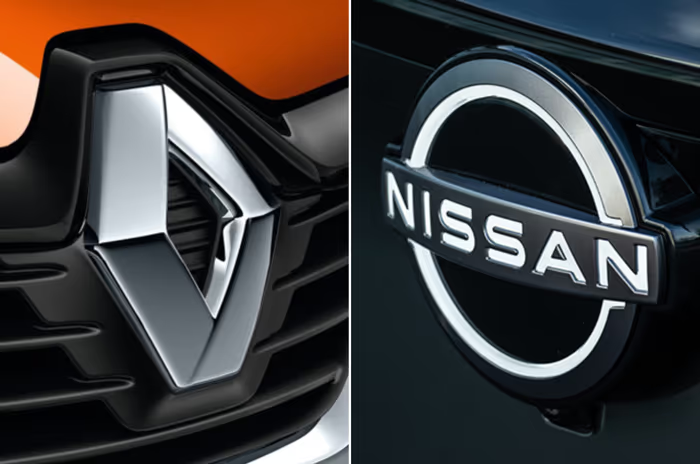The Indian automobile industry is witnessing a significant shift as Renault is set to acquire Nissan’s stake in RNAIPL (Renault Nissan Automotive India Private Limited). This move marks a strategic realignment of both brands in the Indian market, paving the way for Renault’s stronger independent presence while reshaping Nissan’s future in the country.
With India being one of the fastest-growing automobile markets, Renault’s decision to fully control its manufacturing operations could have major implications for the brand’s market strategy, production capacity, and long-term sustainability.
This blog delves into the deal’s details, the potential impact on Renault and Nissan, and what this means for Indian consumers.
The Renault-Nissan Stake Deal: What You Need to Know

Renault’s acquisition of Nissan’s stake in RNAIPL (Renault Nissan Automotive India Private Limited) is a significant restructuring move. Here’s what’s happening:
- Renault is acquiring Nissan’s stake in RNAIPL, making it the sole owner of the Chennai-based plant.
- The manufacturing facility will now operate under Renault’s full control, impacting production strategies and operational efficiency.
- Nissan will retain its stake in Renault Nissan Technology & Business Centre India (RNTBCI), but not in RNAIPL ensuring continued involvement in vehicle development and engineering operations.
This RNAIPL decision aligns with Renault’s ambitions to strengthen its presence in India, a market that has huge potential for growth in both passenger and electric vehicles (EVs).
Why is Renault Acquiring Nissan’s Stake?
Renault’s stake acquisition in RNAIPL is driven by several strategic reasons:
1. Strengthening Renault’s Position in India
- India is a key market for Renault, and full ownership of the plant allows greater control over production, pricing, and supply chain management.
- Renault can now develop and launch models tailored to Indian consumers without depending on Nissan’s decisions.
2. Nissan’s Shift in Strategy
- Nissan is restructuring its global operations, focusing on high-margin markets instead of cost-sensitive markets like India.
- By exiting the manufacturing operations in India, Nissan can focus more on importing and marketing premium vehicles.
3. Boosting Renault’s EV Plans
- With complete control over RNAIPL, Renault can accelerate the development and production of electric vehicles (EVs) in India.
- This aligns with India’s growing demand for sustainable mobility solutions.
4. Optimizing Production Efficiency
- Renault can streamline operations and reduce costs by implementing its own manufacturing strategies.
- The Chennai plant can focus on models that are popular in the Indian market, avoiding unnecessary investments in Nissan’s models.
Impact on Renault, Nissan & Indian Consumers
🔹 Impact on Renault
✅ Greater flexibility in product planning – Renault can now prioritize models that suit Indian consumers’ preferences.
✅ Stronger manufacturing capacity – With full control over production, Renault can improve efficiency and cost management.
✅ Potential for more localized electric vehicle (EV) production – India’s EV market is growing, and Renault can use this plant to expand its EV lineup.
🔹 Impact on Nissan
❌ Reduced footprint in India’s mass-market segment – Nissan will no longer have manufacturing control, making it dependent on imports.
✅ Focus on premium & electric vehicles – Nissan might reposition itself as a premium brand, focusing on imported models and EVs.
✅ Continued presence in research & development – Nissan will remain in India through RNTBCI, working on engineering and technology innovations.
🔹 Impact on Indian Consumers
✔ More Renault models in the market – Expect new affordable and EV models from Renault.
✔ Possible discontinuation of some Nissan models – Nissan’s current lineup may shrink as its local production halts.
✔ Competitive pricing & better after-sales services – Renault’s direct control over operations could lead to better pricing and improved service networks.
What This Means for the Indian Auto Industry
The Renault-Nissan restructuring will have long-term implications for India’s auto sector:
- Renault could emerge as a stronger player, competing directly with brands like Maruti Suzuki, Hyundai, and Tata Motors.
- Nissan’s reduced presence might create opportunities for other global brands to enter the market.
- Increased investment in EV production could accelerate India’s transition to electric mobility.
Future Outlook of RNAIPL: What to Expect Next?
🔮 Renault’s Future in India
📌 New Model Launches – Renault is expected to introduce next-gen versions of the Kwid, Kiger, and Triber, along with new EV models.
📌 Aggressive Market Expansion – With full control over operations, Renault might expand its dealer network and improve after-sales services.
📌 EV Production Growth – Expect more locally manufactured electric cars, making EVs more affordable for Indian buyers.
🔮 Nissan’s Future in India
📌 Fewer Locally Manufactured Cars – Nissan might reduce its focus on mass-market models, relying more on CBU (Completely Built Unit) imports.
📌 Emphasis on SUVs & EVs – Nissan could bring in high-end SUVs like the X-Trail and Pathfinder, along with new electric cars.
📌 Potential Partnership Models – Nissan might collaborate with Renault for specific model launches instead of independently producing cars.
Final Verdict: A Game-Changer for Renault in India
Renault’s decision to acquire Nissan’s stake in RNAIPL is a bold move that signals a long-term commitment to the Indian market. By gaining full control over manufacturing, Renault can strengthen its position, expand its EV lineup, and offer better products at competitive prices.
For Nissan, this strategic exit from local production allows the brand to focus on premium imports and electric mobility. However, it also means losing a significant share of the Indian market to competitors like Tata, Hyundai, and Maruti Suzuki.
With Renault’s new direction and Nissan’s repositioning, the Indian automobile industry is set for exciting transformations in the coming years.
Read More: CSK to RCB: Teams with the Largest Fanbase in IPL
FAQs
Why is Renault acquiring Nissan’s stake in RNAIPL?
Renault is acquiring Nissan’s stake in RNAIPL to gain full control over its manufacturing operations in India, allowing it to expand its product lineup, improve cost efficiency, and focus on EV production.
Will Nissan continue selling cars in India?
Yes, but Nissan’s local production will stop, and it will likely import premium SUVs and electric vehicles instead. The company will also remain active in India through its technology and research center (RNTBCI).


